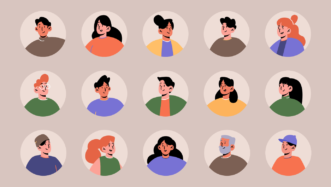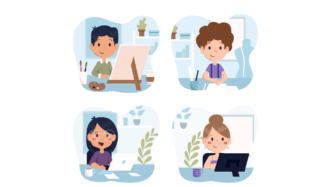LESSON OVERVIEW
This lesson plan will make your students aware of many questioning techniques that they can use to get more accurate information and better answers. In this lesson we don’t focus on making grammatically-correct questions (however this will be practised as well) but rather on how to ask effective questions. We’ll look into the difference between open and closed questions, and the video used in this lesson plan will introduce students to such types of questions as leading, probing, funneling and rhetorical questions.
INTRO: QUESTIONS AND ANSWERS
The lesson plan starts with a quick speaking task. Students have to discuss a few questions around the topic of questioning. It starts with a quote by Voltaire: Judge a man by his questions rather than his answers. The same quote appears in the video and it’s explained a bit.
LISTENING COMPREHENSION: QUESTIONING TECHNIQUES
Note: Let your students watch all the parts of the video twice if there is such a need.
After the warm-up, students move to the first listening comprehension task based on the video. They need to listen to the beginning of the video and complete a few sentences with verbs they hear. The sentences they’ve completed are all different reasons for asking questions. Therefore, in the next task, they have to choose 3 reasons from the previous task and write questions that might be asked in connection with these reasons.
Next, they move to the second comprehension task. This time, they have to watch the second part of the video about the difference between open and closed questions. Using the information from the video, students have to decide which of the provided sentences are closed and which are open. To practise these types of questions, in the next exercise students have to work in pairs, choose one topic from the box and ask each other open and closed questions.
The third part of the video concerns such types of questions as leading, probing, funneling and rhetorical questions. Students watch the last part of the video and decide whether given sentences are true or false. After the last part of the video, we want to check whether students have understood the concept of the types of questions mentioned in the video. Therefore, students get 6 questions and they have to decide which of them are leading, probing or rhetorical questions.
PRACTICE: DETECTIVE FUNNEL TASK
After a bit of theory and examples for various questioning techniques, we want your students to put it into practice! For that purpose, we designed a quirky little exercise were your students will practise funnel questions. This technique is all about starting with general questions, and then drilling down to a more specific ones (or the other way round). Usually, it means you ask about more details with each question. In this task, students work in pairs and one of them will be a police detective who needs to get as much information as possible and the other is an interviewee. We prepared two situations which the interviewees need to read to know how to answer the questions being asked by the detectives. It’s fun 🙂 Test it yourself.
EXTRA WORKSHEET: 5 WHYS FOR PROBLEM SOLVING
We created an extra worksheet, where we want to focus on a very popular problem solving technique called 5 Whys (5W). If your students know something about Six Sigma or Lean, they should be familiar with this technique. Otherwise, they will learn a useful method for problem solving and practise asking questions. Go to Problem solving with 5 Whys to get the extra worksheet.














My students found the videos really boring and it was a hard for me to get them engaged. 🙁
Sorry to hear that but thanks very much for your feedback! It’s super important for us to get your opinions.
I am planning to try it tomorrow with my B2ish grammar class as a way to use grammar in some specific situations in real life and I am very excited.
We all want our students to ask good follow-up questions, and this is the way to teach them how to do it more effectively. So, grammar plus fluency!
I avoid asking yes/no questions myself if I want them to elaborate, and with this structured info in the video I am sure I will have something to refer to while teaching.
Thank you very much for all the work you are doing! Many of your lessons are just life-savers.
Olga, thank you for nice words! We’re looking forward to hearing from you, let us know how this lesson plan worked with your students!
Hi Justa, it worked really well!
We briefly revised types of questions in English and had a quick chat about manipulation, and they gave some examples of leading questions even before watching the video.
They had much fun with the final activity!
What I would add next time I’m working with the worksheet is a writing component.
As I see it, they could ask all possible questions noting down the answers in order to elaborate their notes into a whole consistent story and reconstruct their partners’ words (of course it will require additional time). Drawing a timeline could also be helpful. Having done so, they could compare it with the original story paying attention to accuracy of facts and possible inconsistencies. Then I’d ask them to reflect on the missing parts and what questions could have been asked to be closer to the original story.
Thank you for your work again
Olga, thank you so much for the comprehensive feedback and we’re happy the lesson plan worked well. Your insight will definitely help other teachers to decide whether to do that lesson plan with their students, and help us to improve this and future lesson plans! Thanks 🙂